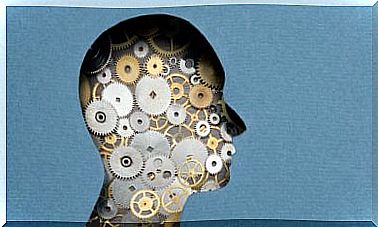The Influence Of Family On Self-esteem Building

The formation of self-esteem is fueled (in part) by the family dynamics in which we were raised. It’s a legacy that leaves its mark and is sometimes difficult to heal. Especially if it came from a father or mother who never loved himself and who was not skilled when it came to meeting needs, giving encouragement, or welcoming their children with care.
Many psychologists say that to be successful in life, you need a good deal of self-esteem. It doesn’t matter whether we want it or not, but few “fuels” give us so much determination, self-confidence and a sense of competence. However, we often go through the world with such a low level of self-esteem that it is almost impossible to activate our overcoming mechanism.
As the famous cultural anthropologist Margaret Mead explained, the family is the first social group where the set of interactions that take place determines a good part of who we are. Our parents have a duty and obligation to fill this store with adequate nutrients, rich components where there is no lack of security, caring, consideration, and a vital impulse capable of encouraging us to walk around the world feeling important.
However, on this arduous path in building our self-esteem, we do not always receive this fuel. This inevitably leads us to start a path of personal search in an attempt to fix that childhood where many things were missing…

Building self-esteem and harmony with our parents
The formation of our self-esteem begins in childhood. However, does this mean that self-esteem is completely determined by this whole set of previous experiences lived in our childhood and youth? Well, in psychology, as in much of the sciences, the word “determinism” is dangerous and has deep nuances.
In psychological matters, everything that happened in childhood influences us a lot, but it does not determine us. In other words, human beings and, especially, their brains, have a lot of plasticity and a great capacity for overcoming difficulties. However, all of this forces us once again to look at the great importance of our education and the quality of relationships with those who care for us and who provide us not only with sustenance but also with an emotional and educational legacy.
To go deeper into this subject, it is interesting to read the books of Dr. Ed Tronick, specialist in child development and professor of pediatrics at Harvard University. An interesting fact mentioned by this psychologist is that, in order to favor the development of children’s self-esteem, it is necessary to be emotionally in tune with children. However, in many of his works, he has demonstrated that even good parents cannot be in tune with their children even 40% of the time.

It is likely that these data strike us as alarming and even dramatic. However, Dr. Tronick points out something that invites us to reflect. The reason many parents don’t connect 100% with their children’s emotional needs is because they don’t act that way about themselves.
A stressed parent, full of resistance and unresolved emotional problems will be sending a series of codes, unconscious schemas and languages to the child who will absorb them and act in the same way. In this case, it will be unable to provide the little ones with the development of good self-esteem, since they do not have good foundations, firm roots with which to set examples, guide with attention and security.
The family influences, but you decide
The formation of self-esteem throughout childhood is mainly influenced by three factors: physical appearance, our behavior and our school performance. How our parents deal with these three dimensions can encourage us to grow in security and confidence or, conversely, to hide in the shell of helplessness, loneliness and fear.
The most complex of all this is that, to this day, we continue to see how many mothers and fathers are immature and unconscious when it comes to taking care of their language and way of communicating with children. It is enough to listen to their conversations on the doors of the schools to understand how, without realizing it, they cut off the wings of their children’s self-esteem one by one.
The use of comparisons, absolutist statements (you are a denial, you will never be approved…) or the inability to notice hidden emotional problems often leads new generations to drag the same problem as their own parents: lack of self-esteem.

The family influences the formation of self-esteem, but what happened in the past should not determine our lives. It’s up to us to stop hurting ourselves because we don’t have the fuel we need to sustain our self-esteem . It is possible to repair a childhood of lack to supply our maturity with everything that others could not give us.
It is necessary to learn to fuel ourselves, to stop looking outside for what we can find within ourselves. Self-esteem must be worked on every day; it requires change, it requires courage, and it needs, above all, a great deal of self-love. Regardless of our past, it is always time to generate change, to invest in self-esteem.









